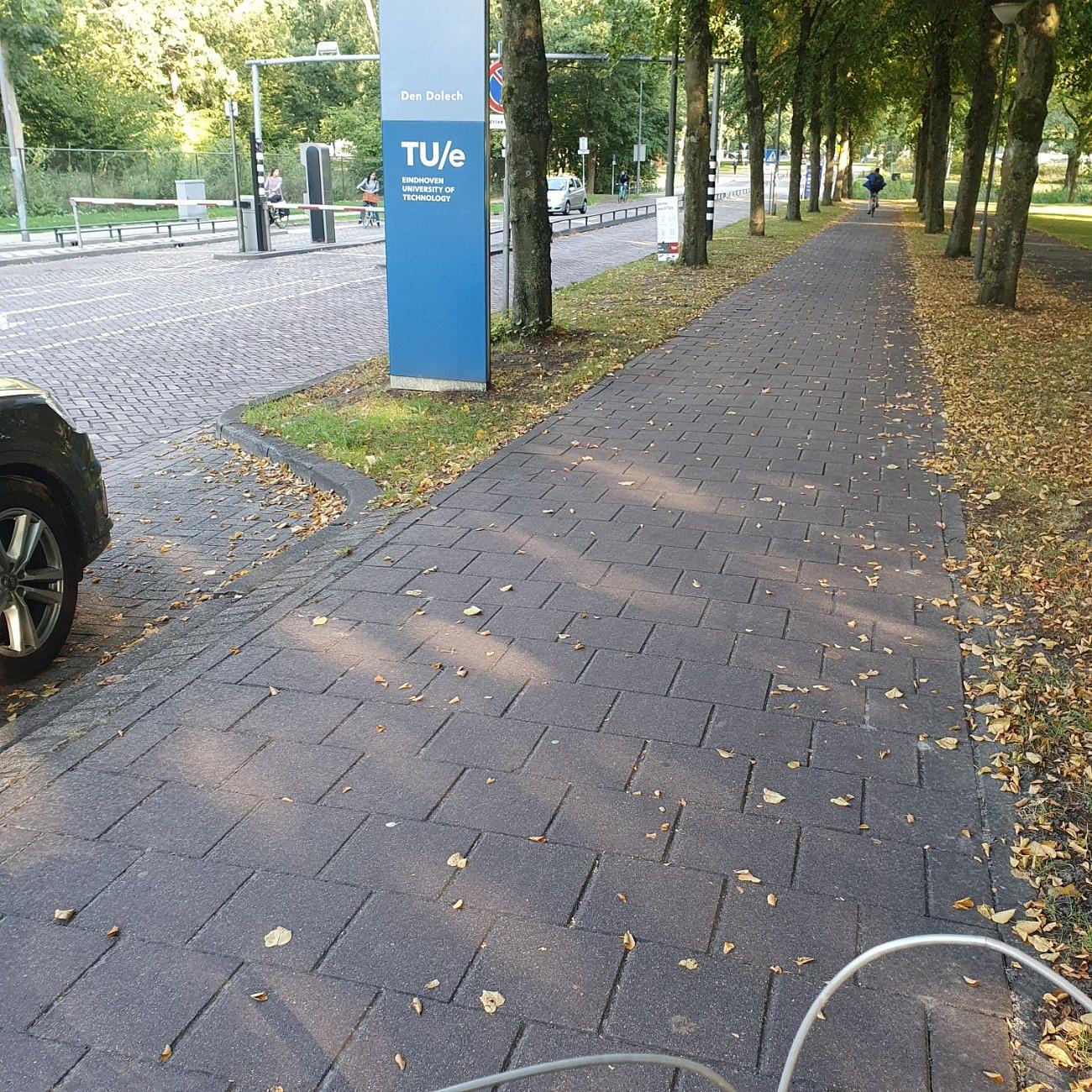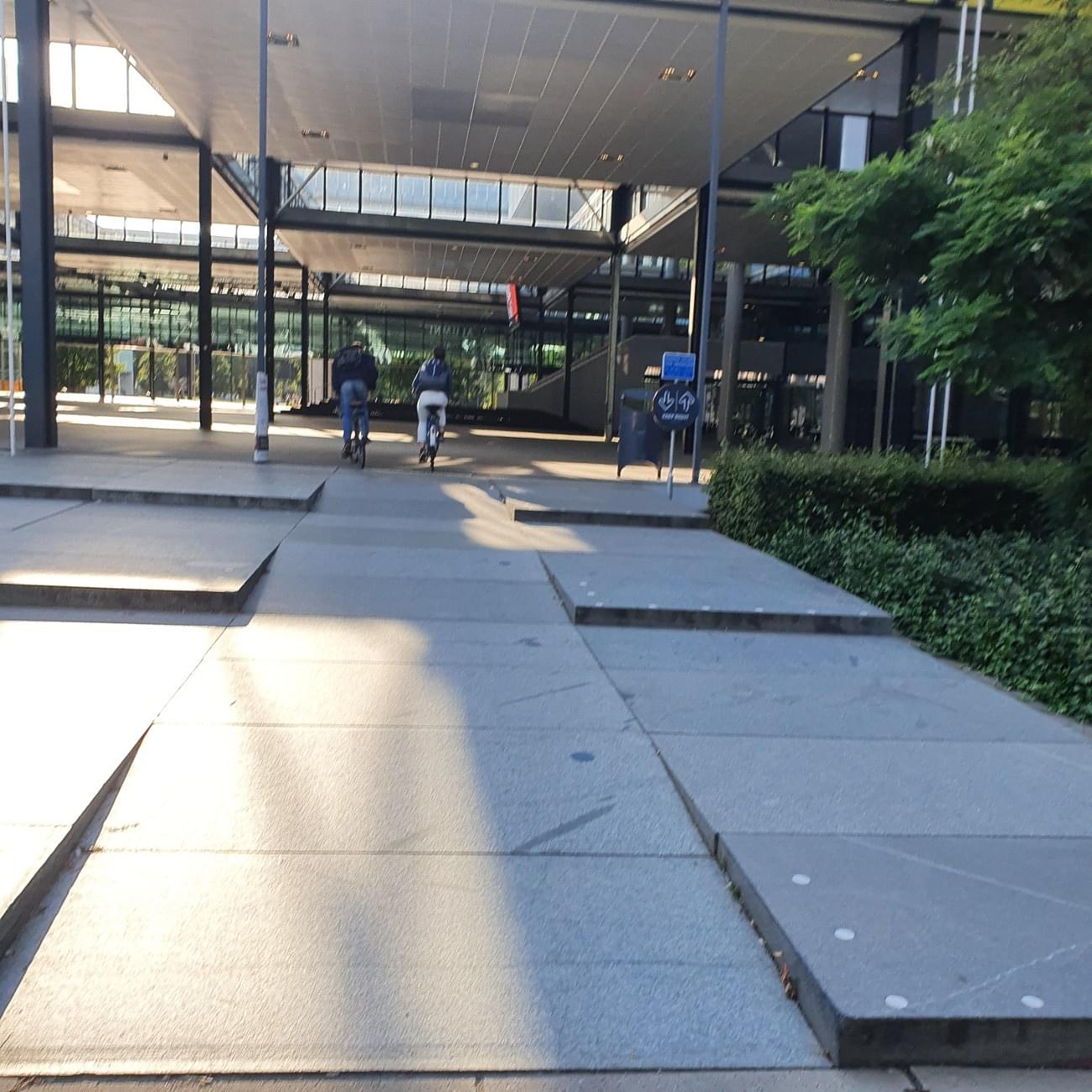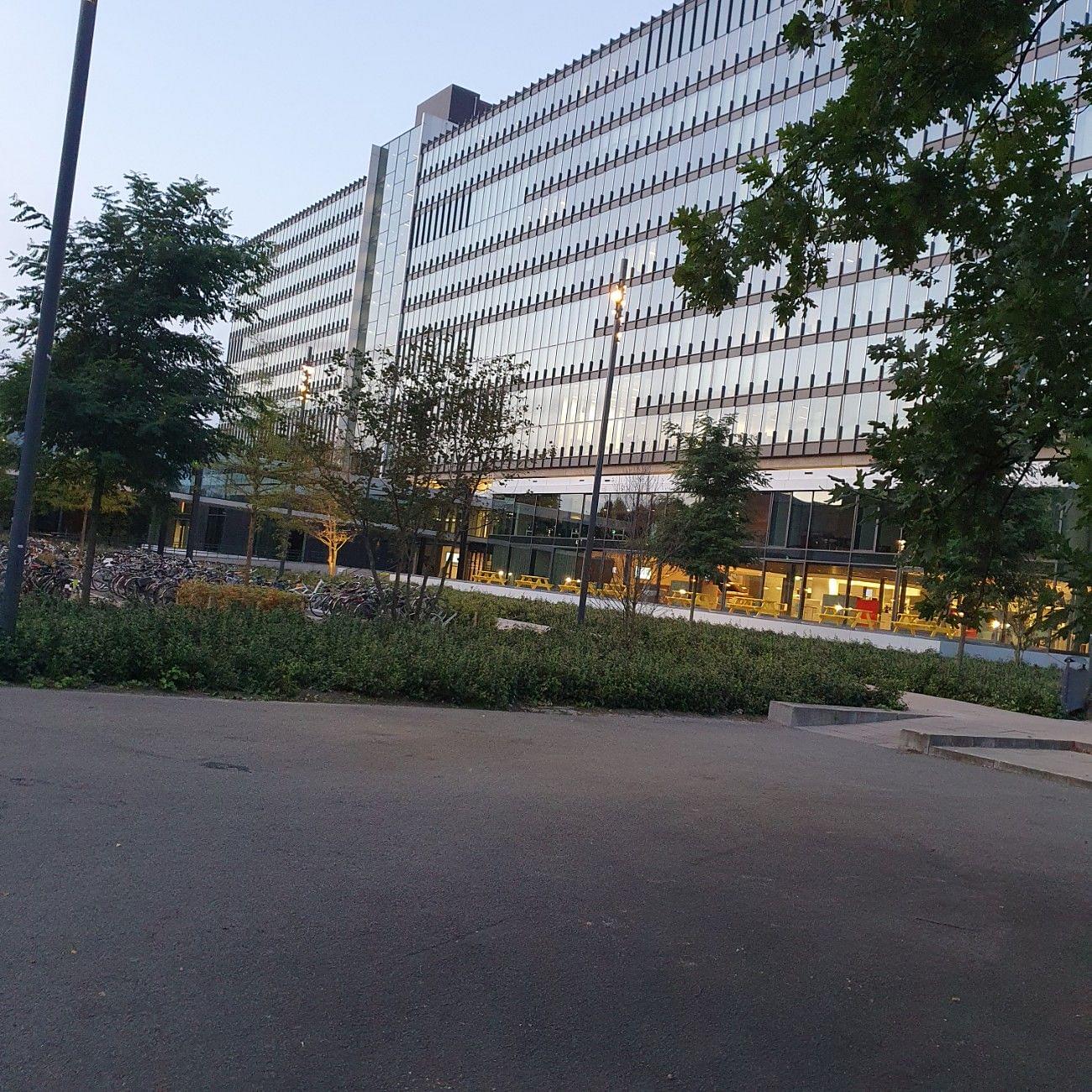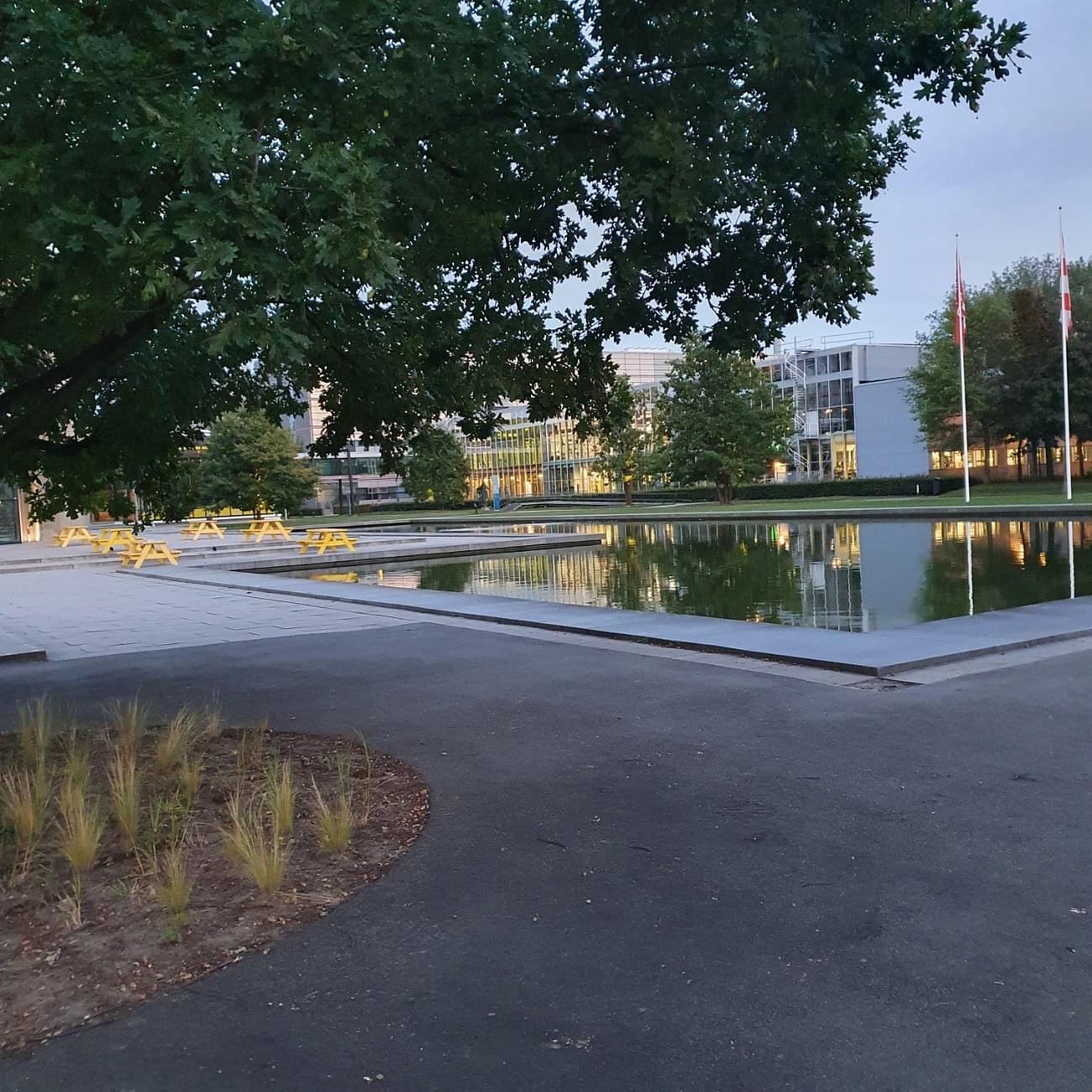What Students Say
Likes
- Lot of different specializations to choose from.
- The proximity of the university to Eindhoven's automotive high-tech campus (in Helmond) gives great exposure and opportunity.
- Extremely talented and qualified faculty.
Dislikes
- Expensive when compared to EU citizens. Non EU citizens pay 17000-20000 euros p.a. whereas EU citizens only pay 2000 euros p.a.
- Some specialization groups like to extend the thesis research for a long time leading to additional expenses for students. But I think now there is a cap on how long the thesis can continue.
- Very limited student housing options. The two student dormitories in campus have a combined capacity to house around 800 students, whereas the total university strength is > 10000.
Course Curriculum
- The course curriculum is definitely on the harder side. At least 2 hours of self-study are required almost every day in order to score well. The course is almost completely theoretical. However, there are very few electives that have a few practical aspects.
- The positive aspect is that the curriculum is very up-to-date and cutting-edge. There are a lot of high-tech labs and facilities for research during your thesis/internship. The availability of a variety of specialisations to choose from also helps students choose a curriculum that they really enjoy.
- The negative aspect is that there is not a lot of time for a student. Daily assignments, weekly presentations and deliverables, weekly quizzes and seminars and large homework all squeezed within 2 months.
- A typical day will have 2-3 subjects in a day, lasting between 4 and 6 hours. Some subjects also require a "guided self-study session" which lasts for 2 hrs and takes the total to 8 hrs. This is scheduled for about 4 days in a week. All the classes take place between 8 am and 5 pm. Though students often stay back to work on group assignments/projects till late in the evening.
- There are on average 50-60 students per class. My class had around 30 Indians.
Admission Experience
- I applied to a total of 4 universities: Eindhoven university of technology, Delft university of technology, Twenty university of technology, Chalmers university and Carnegie Mellon university. Out of the 5, I got accepted into 3 and was rejected by 2.
- I was rejected by Delft because I applied very late. By the time my application was submitted, they already had filled up all the seats. But they refunded my application fee.
- I was also rejected by Carnegie Mellon university. They didn't give me a reason for rejection, but I suspect it is because I applied for the spring intake of 2020. Spring intakes are usually for deferred admissions and usually have very few openings.
- I choose Eindhoven university of technology since several alumni from my school and college had completed their master's there. Furthermore, there are not a lot of universities that offer a degree in automobile engineering. But Eindhoven university of technology has a very reputable M.Sc. in Automotive .
- For all investors in the Netherlands, common portals called Studielink and Osiris are used. I chose my universities there and uploaded the required documents. I got my admit within 2 months.
- For Eindhoven university of technology, they require a CGPA of 8 and above for Indian students. Furthermore, we are required to submit an English language test like IELTS or TOEFL. They require 6.5 or 7 in IELTS for acceptance.
- The admission process was pretty straightforward and smooth. The university website has a step-by-step guide on how to apply. So I just followed that and everything worked out. After admission, however, I found it a bit problematic to submit the physical documents to the university in the Netherlands. The applicants from India are supposed to get their birth certificates apostilled. This caused a bit of delays. Also, physically mailing your original degree certificates and transcripts all the way from India to the Netherlands is a bit risky since there is a chance that documents get lost somewhere in transit. They don't accept soft copies after admission.
- I applied for the fall intake. Spring intakes are usually reserved for deferred applications. I don't think Eindhoven university of technology even has any spring intakes. Also, if you get a spring admit, then there will be a lot of catching up to do to cover the syllabus and it will be hard to find a house.
- I applied on October 10, 2019 and got admission around 15 December 2019. I started my class on 31st August 2020.
Faculty
- For the core electives (subjects that every student had to take), there was 1 professor and 2 teaching assistants for a class of 60 students. For electives, the number of students was between 20-30. The teachers are very approachable. If a student couldn't get his/her doubts clarified in class, they could always get it clarified through mail.
- The teaching style depended on the individual professor. Some were very hands-on and some were not so much.
- Yes, you can always reach out to a professor for any TA jobs, based on availability.
- I think whether a student can get a job or not depends on the student and not the teacher. The students should put in the effort to build a good profile: get good grades and do good projects and internships. The course itself is sufficient to prepare us for job hunting.
- I do not want to take any particular names, but I really liked the faculty members of the specialisation group 'Model Driven Software Engineering (MDSE)'.
Campus Life
- Eindhoven university of technology only has 1 campus.
- The campus has several libraries, an indoor and outdoor sports complex, Gymnasium, a lot of auditoriums, a few restaurants like subway, a small convenience store to buy groceries if needed. Medical services are also available 24x7.
- Master kick-off is a major event that happens every year. The new master's students are shown around the campus and the city. You can meet and make a lot of friends here. There are also yearly sports events for football, track and field, hockey golf and basketball. 5-a-side indoor football is also very popular.
- There are a lot of scholastic student groups that work on a lot innovative subjects like formula student, polar exploration, innovation clubs, etc.
Part Time Jobs
- There are usually 2-3 teaching assistants for every course. Their pay range is around 20 euros per hour. Students can get up to 16 hrs maximum per week for TA positions. Apart from this, there is also a possibility of getting a research assistant job. I'm not sure about the pay range.
- There are also a lot of unpaid jobs. Students can get roles in clubs like presidents, treasurers, assistants, etc.
- As per Dutch law, students can only work up to 16 hrs per week. It is quite difficult to find on-campus jobs that are paid, since there are few openings but a lot of applicants.
- Most indian students do food delivery jobs like Uber eats and thuisbezorgd. The pay usually ranges between 15-20 euros per hour. The payments are paid out weekly. It is fairly easy for students to get a job as a food delivery person in thuisbezorgd. A lot of students also get jobs as waiters in restaurants and cooks in fast food places like Domino's. There isn't any interview for these jobs. You just have to apply for it online on their website. A resume is also not required. A valid residence permit, however, is required during application.
Placement
- Most students in my batch got placed within 6 months to a year. I don't have an exact number. For most master's graduates, the starting pay is between 40000-45000 euros p.a.
- There isn't any campus recruitment for master's students. A lot of students get placed in the company where they did their internships or thesis. There are however Campus visits by the representatives of a lot of companies where you can meet and exchange numbers and submit your resume.
- Most students, however, get a job by directly applying for it online, either directly on the companies' career pages or through job portals like linkedin. The automotive campus in Helmond also has fairs where students can visit and meet recruiters from different companies working there.
- A lot of my friends got placed in DAF trucks. VDL, NXP systems and ASML are also popular companies where a lot of Eindhoven university of technology graduated get placed.
Accommodation
- I got accommodation off campus. I got a studio from a housing agent called 'Holland2Stay', which is the most popular way to get housing in Eindhoven. My monthly rent was around 800 euros. It was a fully furnished studio apartment. It had all the required furnishing like tables, chairs, sofas and beds. The kitchen had all the appliances like a stove, oven, refrigerator and cutlery. Internet was included in the rent. Hearing, water and garbage disposal were not included.
- The Netherlands has an extreme housing shortage. So most students have to rely on a 'lottery system' to get accommodation. Meaning, out of hundreds of people that apply for a house, one person is randomly chosen. This is a big challenge if you don't get lucky.
- I recommend the future students either not consider the Netherlands (only due to the housing situation) or start looking for housing 1 year in advance!
- My studio was within a kilometre from the university.
Exams
- An English language exam certificate is required. This could be IELTS, TOEFL or Cambridge.
- You need your degree certificate if you already have it. In case you don't, you will have to submit it once you get it. You need to submit the original degree certificate to the university. You will also need a transcript of all your grades. In case you have already graduated, then the final transcript is needed (with grades of all the subjects in all 8 semesters). In case you are still studying, the transcript should be till the latest semester that is completed. Also, a statement of purpose, 2-3 letters of recommendation, and a resume.
- There is no interview process.
Fees
- For the academic years 2020-2021 and 2021-2022, the fee was 17000 euros p.a. There was an option to either pay the full amount or pay in monthly instalments.
- The living expenses would amount to about 10000-12000 euros p.a. If someone manages to get a room in student dormitories, then the rent is around 250-450 p.m. In case a student could only find private housing outside, then that will easily be between 600-1000 euros p.m.
- Groceries would be around 200 euros p.m. For transportation, most people use a cycle, which secondhand should cost around 100 euros.
Scholarship
- No, I did not receive any scholarship.
- A few of my batchmates received it. I think scholarships range from 50% tuition fee to 100% tuition fee and some percentage of living expenses.
- I am not sure about the exact number of students that receive scholarships each year, but around 5-7 students from a class of 60 students had scholarships when I was studying there.








